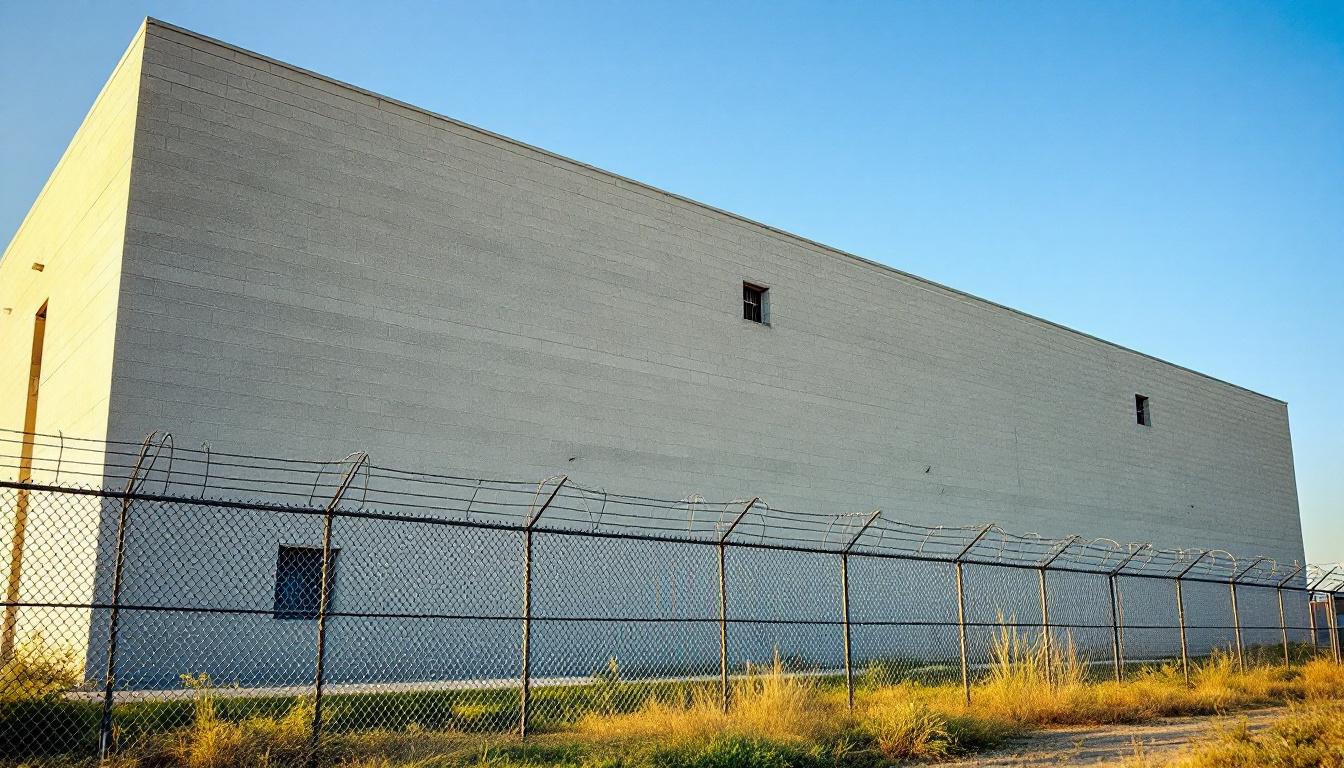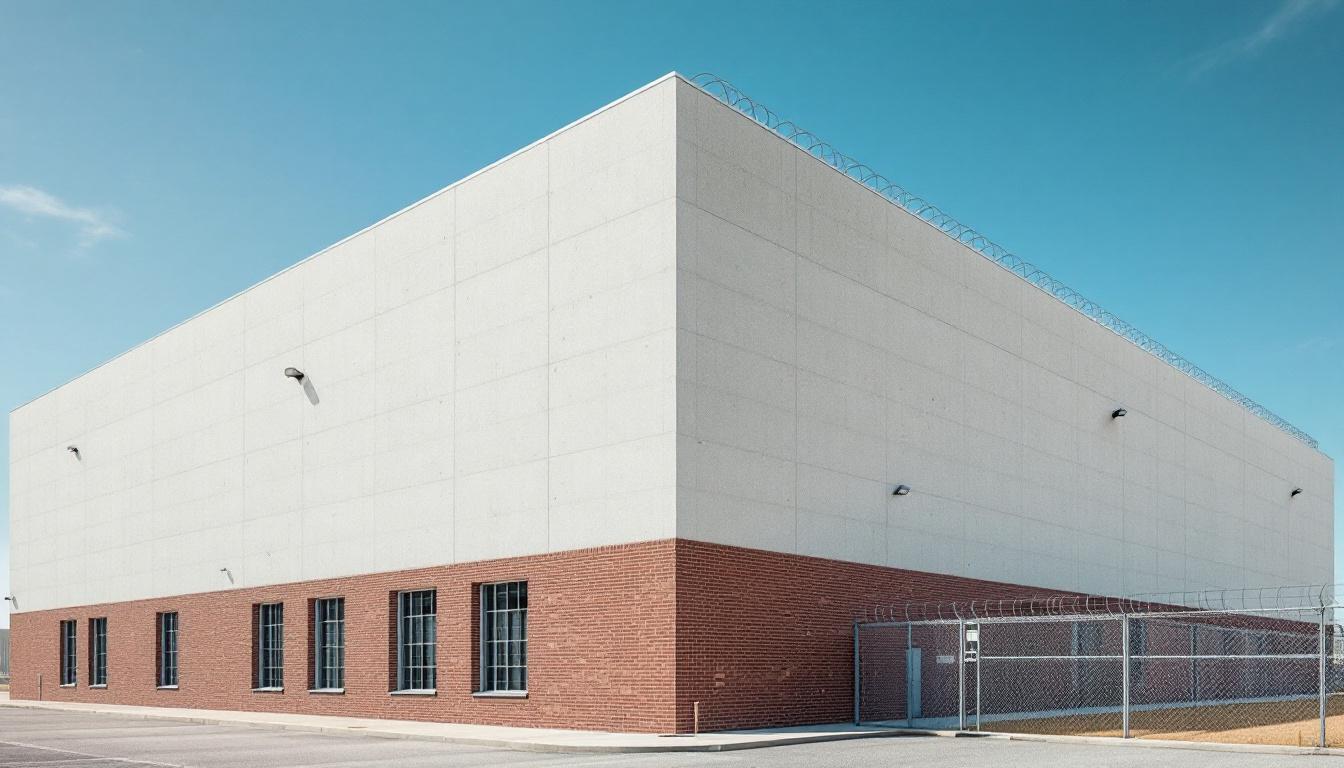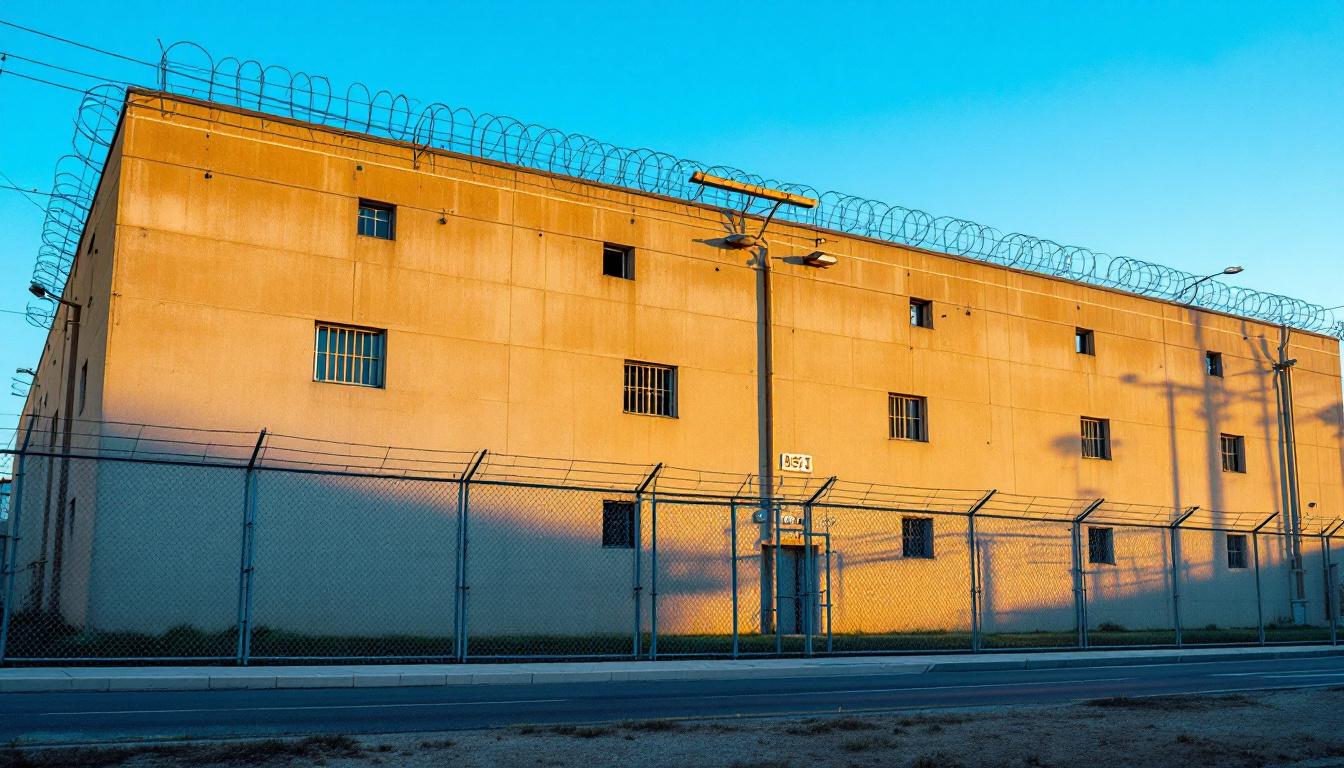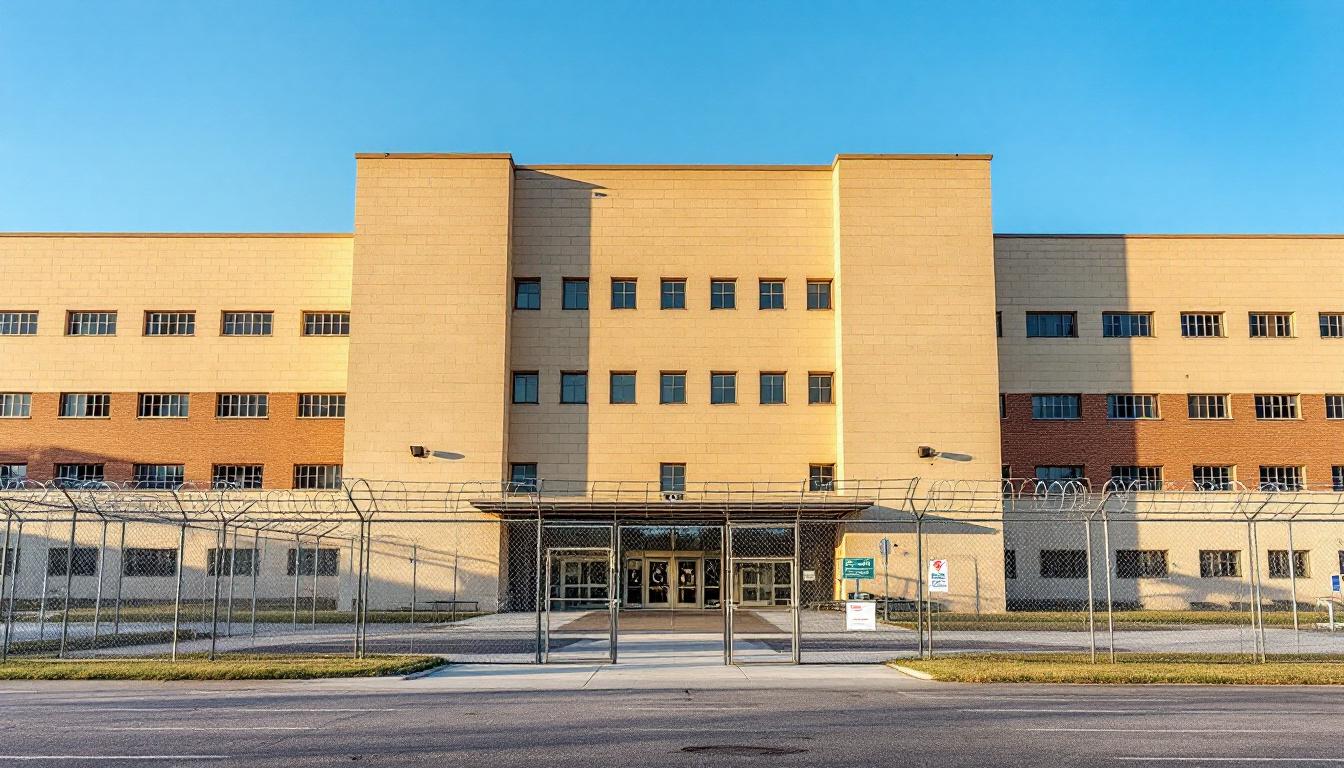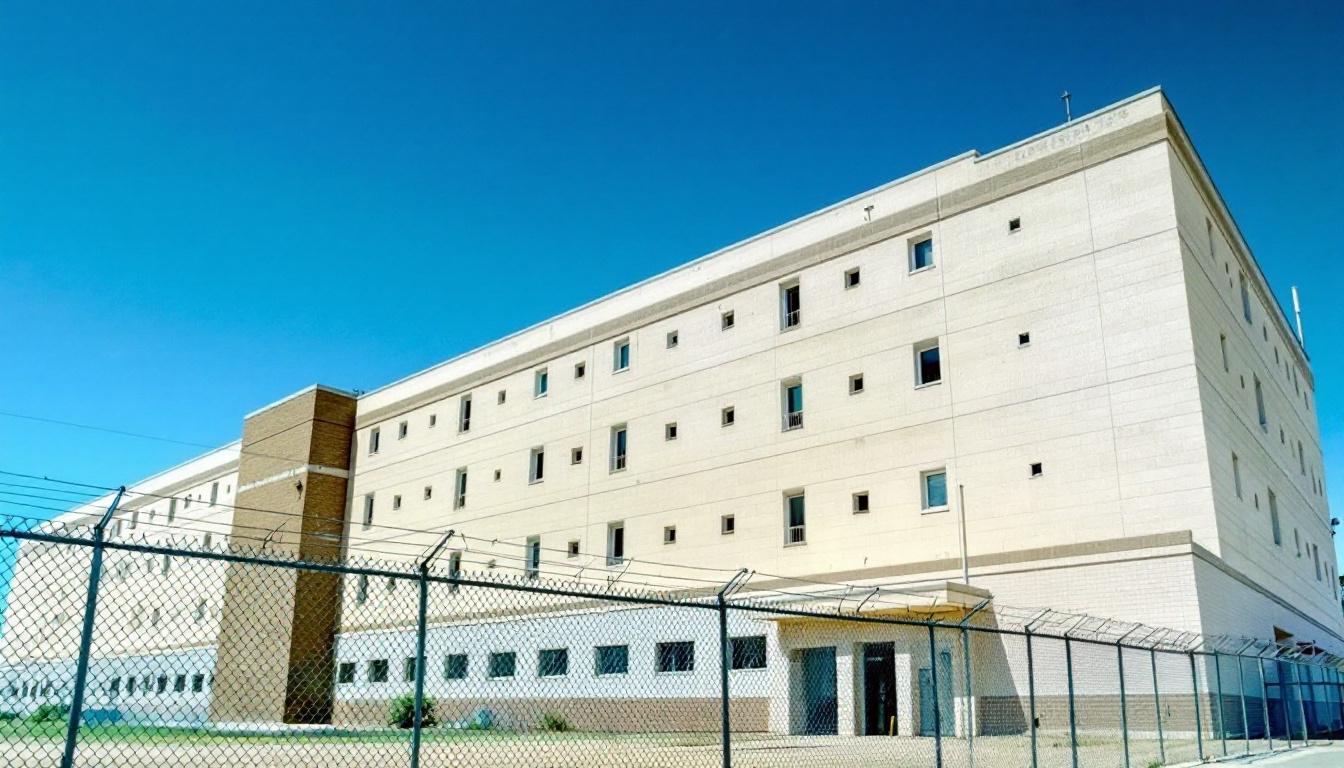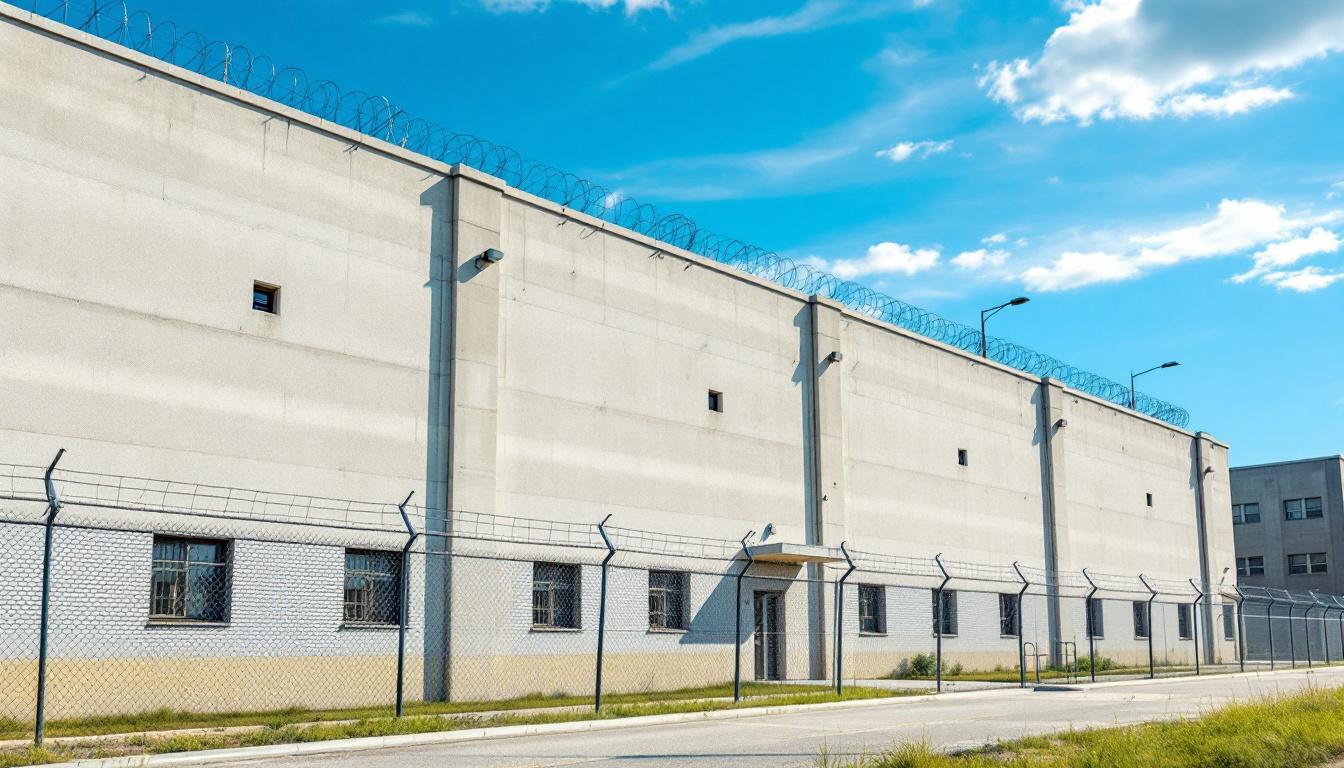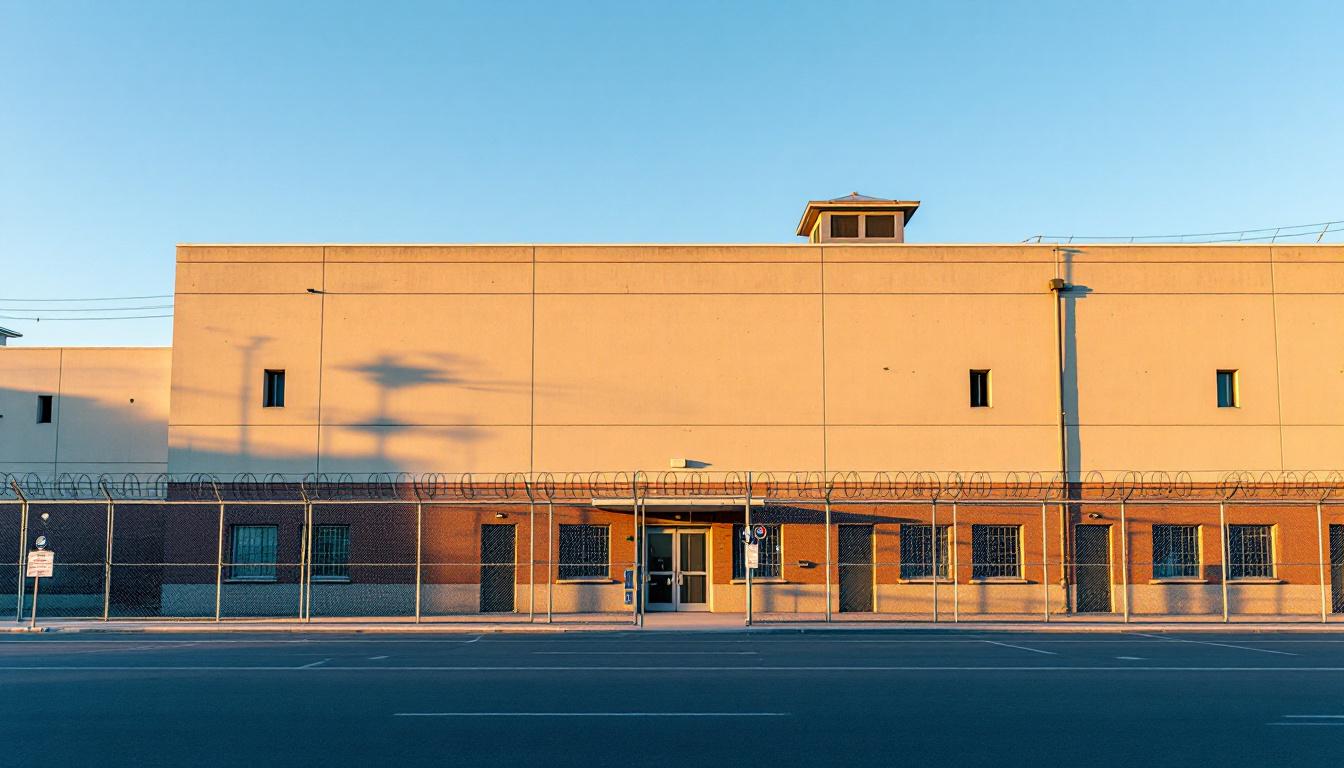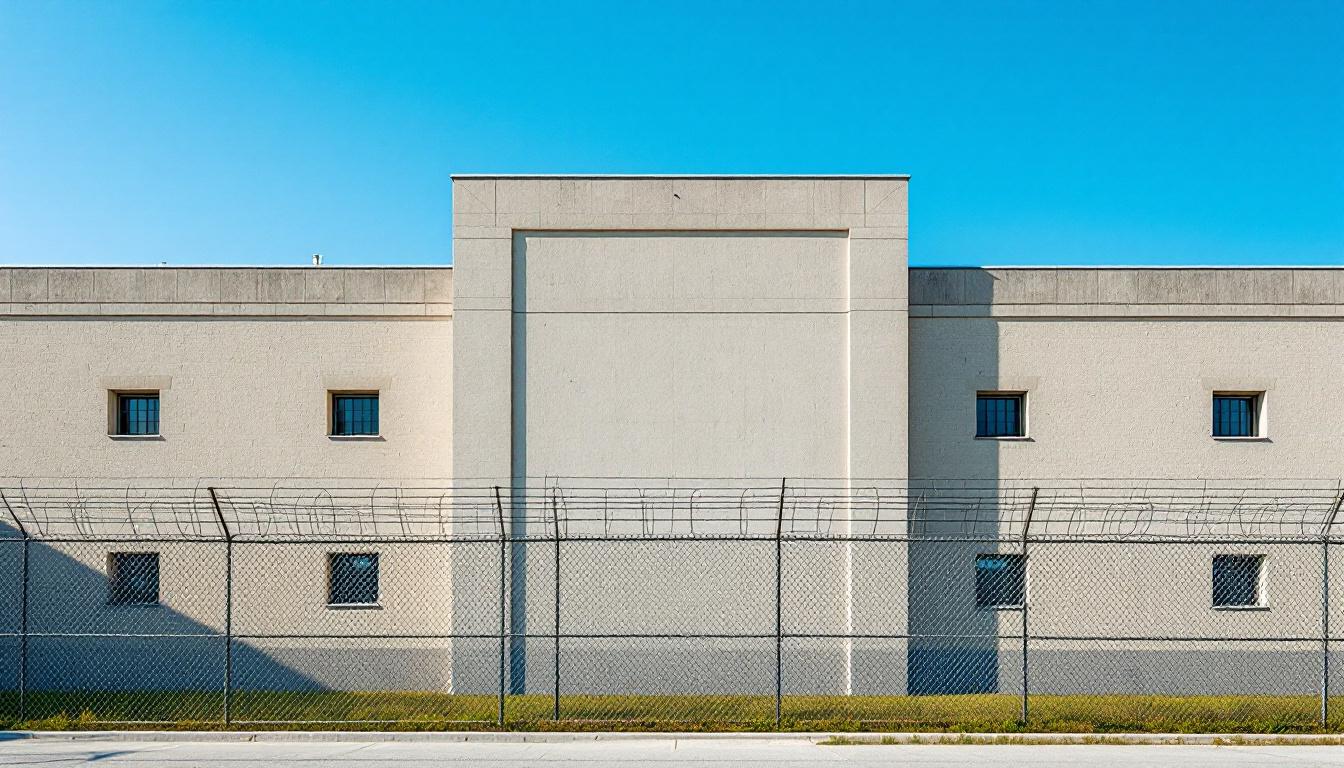
Quick Navigation
How to contact an inmate at Chariton County Sheriff’s Department
This comprehensive guide will walk you through how to connect with an inmate at Chariton County Sheriff’s Department. Follow the steps below to find an inmate and send letters and photos:
- Search for the inmate using our search tool below
- Create your account or log in to Penmate
- Write your message (up to 6,000 characters)
- Send instantly - inmates receive printed copies daily
Find an Inmate
Search for an inmate to start communicating today
Tip: You can search by first name, last name, or inmate ID number
To contact a person at Chariton County Sheriff’s Department start by searching for the person on the official facility website. Perform a search by following these steps:
- Step 1: Enter their first name and last name into the search form and click "Search"
- Step 2: Locate their inmate record
- Step 3: Write down their Inmate ID and any housing information provided
Important! Be sure to enter the person's full name. Nicknames should not be used.
How to Send Messages to Inmates

You can use your phone or computer to send emails, letters, and photos to an inmate. Messages are sent electronically to inmate tablets or kiosks at the facility. If you would like to send a message, start by searching for an inmate at Chariton County Sheriff’s Department.
Sending Photos and Postcards

A great way to send love and support to a loved one at Chariton County Sheriff’s Department is to send photos and postcards. It only takes a few minutes to send photos from your phone and it makes a huge difference. You can also mail postcards with words of support and inspiration, or design your own postcard for special moments like birthdays and holidays.
Important! Be sure not to send any explicit photos or they may not be approved by the facility. You can also use a photo printing app like Penmate to make sure your photos are printed at the correct size (4x6 or 3x5) and are mailed according to the rules and regulations of Chariton County Sheriff’s Department.
Frequently asked questions about Chariton County Sheriff’s Department
-
How long does it take to deliver a message?
If you're sending an email message your letter is usually delivered within 24-48 hours. For messages sent via mail you should expect delivery within 3-7 days. All messages will need be approved by Chariton County Sheriff’s Department.
-
How much does it cost to send a message to Chariton County Sheriff’s Department?
You can send a message free using your phone or mail a message via USPS for the price of a $0.60 stamp and envelope. You can also purchase credits or e-stamps from services starting at $1.99.
-
What services can I use to contact an inmate at Chariton County Sheriff’s Department?
Penmate
You can use Penmate to send letters and photos to an inmate from your phone. It's an easy way to stay in touch during your loved one's incarceration. Use the inmate locator to find an inmate's location and contact information, then you can send messages within a few minutes.
Securus messaging
Securus may be another option for communicating with an inmate at Chariton County Sheriff’s Department. You can create a friends and family account and purchase credits to send messages. All messages will be reviewed and must be approved by the facility.
JPay
Some county jails and state prisons may support sending messages with JPay. You must register an account with the system, find your loved one, and purchase stamps to send messages. For some locations you can also attach photos.
Smart Jail Mail
You may also check if Smart Jail Mail is available at Chariton County Sheriff’s Department. Smart Jail Mail is operated by Smart Communications and has contracted with some state and county jails. After purchasing credits, your messages and photos are sent to the facility, printed out, and then handed out to your loved one.
-
What is the mailing address of Chariton County Sheriff’s Department?
Mailing address:
Chariton County Sheriff’s Department
307 S Cherry St
Keytesville, MO 65261
Phone: (660) 288-3277 -
What are the visiting hours at Chariton County Sheriff’s Department?
Visiting hours at Chariton County Sheriff’s Department vary by housing unit and security level. Generally, visits are scheduled on weekends and holidays, with some facilities offering weekday visits. Contact the facility directly at (660) 288-3277 or check their website for the current visiting schedule. Visits typically last 30-60 minutes and must be scheduled in advance.
-
What items are prohibited when sending mail to Chariton County Sheriff’s Department?
Prohibited items typically include: cash, personal checks, stamps, stickers, glitter, glue, tape, staples, paperclips, polaroid photos, musical or blank greeting cards, hardcover books, magazines with staples, and any items containing metal or electronics. Only send letters on plain white paper with blue or black ink. Photos must be printed on regular photo paper (no Polaroids). Always check with Chariton County Sheriff’s Department for their specific mail policies.
-
How do I send money to an inmate at Chariton County Sheriff’s Department?
You can send money to an inmate at Chariton County Sheriff’s Department through several methods: 1) Online using JPay, Access Corrections, or the facility's approved vendor, 2) Money orders mailed directly to the facility with the inmate's name and ID number, 3) Kiosks located in the facility lobby, or 4) Over the phone using a credit or debit card. Fees vary by method, typically ranging from $2.95 to $11.95 per transaction.
-
Can I schedule a video visit with an inmate at Chariton County Sheriff’s Department?
Many facilities now offer video visitation as an alternative to in-person visits. At Chariton County Sheriff’s Department, video visits may be available through services like Penmate, Securus Video Connect, GTL, or ICSolutions. Video visits typically cost $10-20 for 20-30 minutes and must be scheduled in advance. You'll need a computer or smartphone with a camera and reliable internet connection. Contact the facility for their specific video visitation policies and approved vendors.
-
What identification do I need to visit an inmate at Chariton County Sheriff’s Department?
All visitors must present valid government-issued photo identification such as a driver's license, state ID, passport, or military ID. Minors must be accompanied by a parent or legal guardian who can provide the minor's birth certificate. Some facilities require visitors to be on the inmate's approved visitation list, which may require a background check. Contact Chariton County Sheriff’s Department for specific ID requirements and visitor approval procedures.
-
How can I find out an inmate's release date?
To find an inmate's release date at Chariton County Sheriff’s Department, you can: 1) Use the online inmate search tool if available, 2) Call the facility's records department, 3) Contact the inmate's case manager or counselor, or 4) Have the inmate provide this information during a call or visit. For privacy reasons, some facilities only release this information to immediate family members.
Facility Overview
Contact Information
Chariton County Sheriff’s Department307 S Cherry St
Keytesville, MO 65261
Phone: (660) 288-3277
Official Website
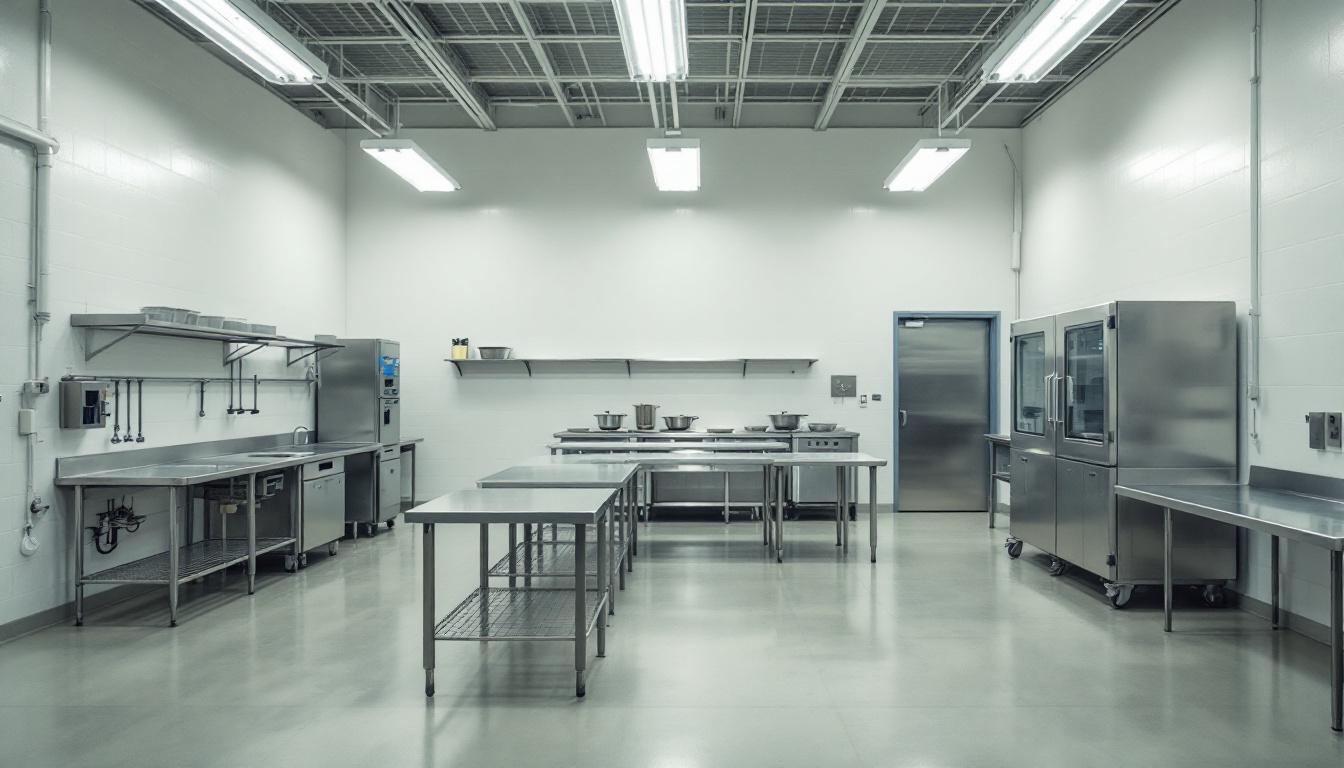
About Chariton County Sheriff’s Department
Nestled in the heart of Keytesville, Missouri, the Charition County Jail, MO serves as a cornerstone of the local criminal justice system, reflecting the broader evolution of correctional practices throughout the Midwest region. This MO correctional facility has adapted over time to meet changing community needs while maintaining its fundamental commitment to both secure detention and meaningful rehabilitation opportunities. The facility's location in rural Missouri positions it within a network of county-level institutions that have historically emphasized community-centered approaches to corrections, balancing public safety concerns with the recognition that most individuals will eventually return to their neighborhoods.
The jail's operational philosophy typically centers on providing residents services that address underlying factors contributing to criminal behavior, while ensuring appropriate security measures remain paramount. Educational programming often includes basic literacy courses, GED preparation, and vocational training opportunities that align with regional employment needs. Mental health support and substance abuse counseling may be integrated into daily operations, reflecting contemporary understanding of rehabilitation's role in reducing recidivism. The facility generally maintains connections with local community organizations, faith-based groups, and social service agencies to create pathways for successful reintegration upon release.
Within Missouri's county jail system, this Keytesville facility represents the ongoing balance between traditional detention functions and progressive rehabilitation models that have gained prominence across rural America. The institution typically offers structured daily routines that may include work programs, counseling sessions, and educational activities designed to promote personal growth and skill development. Family visitation and communication programs often serve as vital links to community support systems, while pre-release planning services help prepare individuals for their transition back into society, embodying the facility's dual commitment to security and meaningful second chances.
Programs & Services
Rehabilitation-focused initiatives at Charition County Jail emphasize skill development and personal growth through comprehensive programming designed to address the diverse needs of residents. The facility's approach typically centers on providing meaningful opportunities that prepare individuals for successful community reintegration while addressing underlying factors that may have contributed to their incarceration. These initiatives often include structured pathways that allow residents to progress through various levels of programming based on their individual circumstances and goals.
Educational initiatives may deliver basic literacy instruction, GED preparation, and adult education courses that help residents develop fundamental academic skills. These programs typically utilize individualized learning plans to accommodate varying educational backgrounds and learning styles. Additionally, vocational training initiatives often include hands-on instruction in trades such as construction, food service, and maintenance skills that provide residents with marketable job skills upon release. The facility may offer certification programs that align with local employment opportunities, helping participants build confidence while developing practical competencies.
Support services through prison industries typically provide residents with work experience in areas such as laundry operations, kitchen services, and facility maintenance, offering both structure and income opportunities. Additionally, therapeutic initiatives may deliver substance abuse treatment programs that address addiction issues through counseling and education components. Mental health counseling services often include individual and group therapy sessions designed to help residents develop coping strategies and address psychological challenges. These comprehensive support systems typically work together to create an environment where residents can focus on personal development and prepare for successful community reintegration.
Daily Life & Visitation
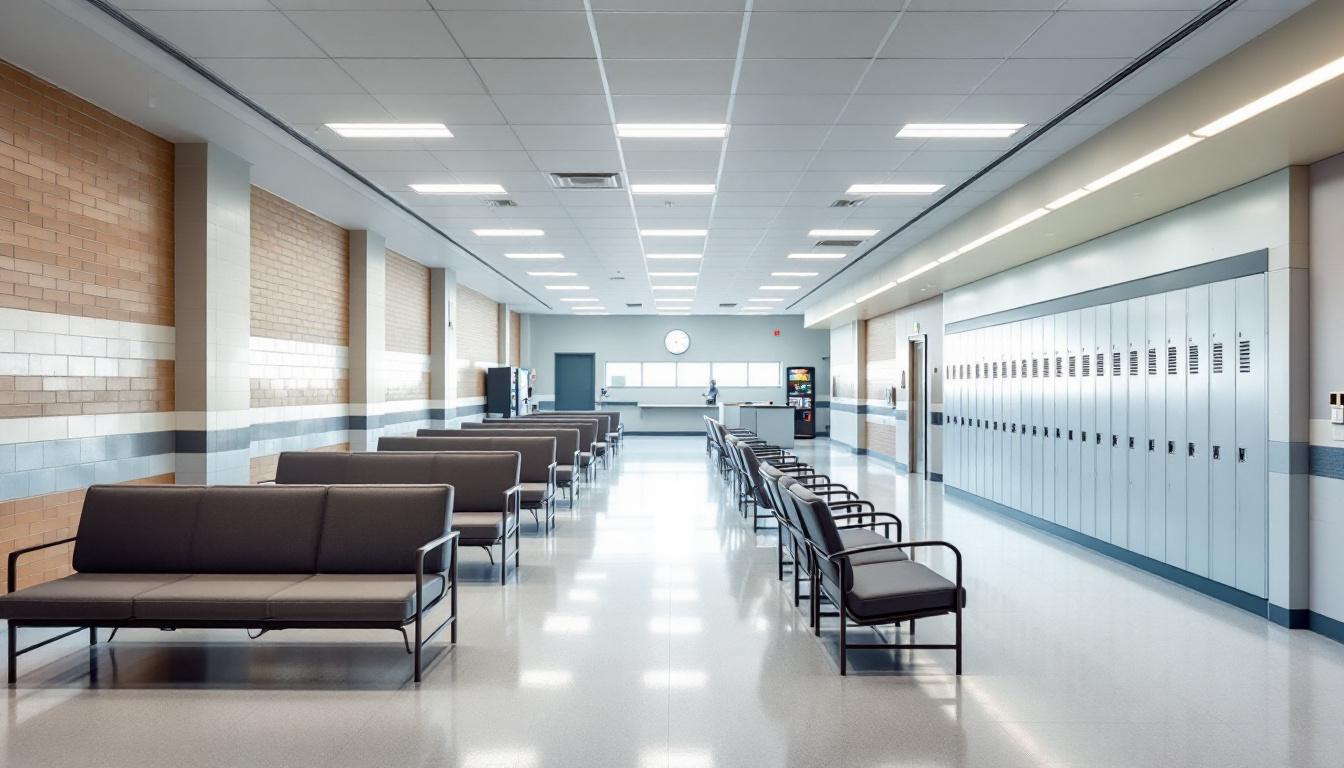
Structured schedules at present deliver stability through consistent daily routines that residents actively follow throughout their time at the facility. The day typically begins with early morning counts and meal service, followed by scheduled activities that may include work assignments, educational programming, or recreational periods. These routines generally provide predictable frameworks that help residents adapt to their environment while maintaining personal discipline and focus.
Housing units accommodate residents in various configurations, with living spaces that typically include basic furnishings and personal storage areas. Meals are usually served in designated dining areas at regular intervals, offering balanced nutrition through planned menus. Additionally, residents often have access to commissary services where they may purchase approved personal items and snacks, while personal property policies generally allow for limited belongings that meet facility security requirements.
Programming schedules deliver structured opportunities for personal development, often including educational classes, vocational training, or counseling sessions that residents may participate in based on availability and eligibility. Recreation periods typically provide time for physical exercise, television viewing, or reading materials from the facility library. While maintaining security protocols, visitation policies usually allow approved family members and friends to maintain contact through scheduled visits, and communication options may include monitored phone calls and correspondence that help residents stay connected with their support systems during their stay.
Ready to Connect?
Start communicating with your loved one today
Search for an Inmate
